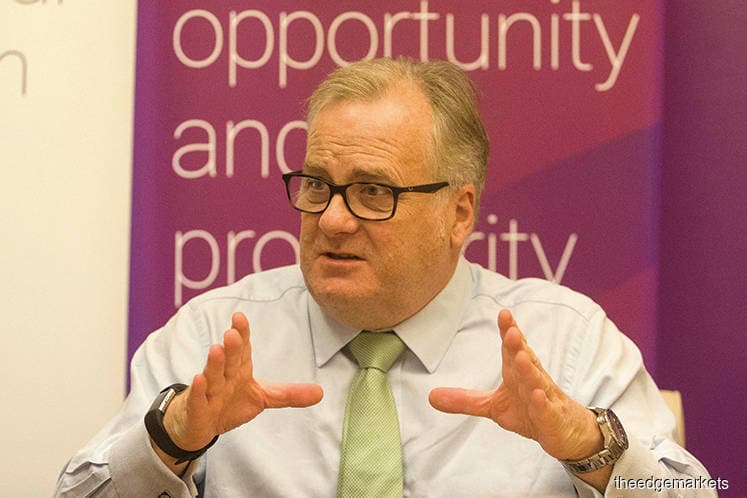
This article first appeared in The Edge Financial Daily on September 18, 2018
KUALA LUMPUR: The role of management accountants — long regarded as the guardians of an organisation’s costing — has evolved in the age of big data.
The Association of International Certified Professional Accountants chief executive (management accounting) Andrew Harding (pic) said though the analysis of big data is not entirely new, the size of data sets can be overwhelming for organisations.
“Most companies struggle with big data — as we now have more data than ever before, but we don’t know what it means. So how do they draw conclusions from that?
“Leaders of businesses want to know what those numbers mean, and the implications for those numbers, and that’s where management accountants come in as somebody needs to tell the stories,” he told The Edge Financial Daily in a recent interview.
Harding said one of the biggest shifts in the management accounting profession is from being a “scorekeeper” to becoming a “storyteller”.
“Management accounting is really about producing that information, telling the story, which enables business leaders and business managers to make right decisions either for their whole company, or for their division or department, that’s what it is fundamentally all about.
“How management accountants contribute to the success of a business is by giving the leaders of the business the insight they need, not just to control the day-to-day operations of the business. Ultimately it is about looking into the future of the business, and making sure the business is successful, not just today, but for the next five years into the future,” he said.
But this does not mean their role has completely deviated from cost accounting.
“Costing is still important as businesses have to be cost leaders, so management accountants have to keep an eye on that. For example management accountants who work in plantation companies are price-takers, therefore they have to control and minimise their costs.
“Over the last decade, however, that role has shifted in the sense that management accountants are business partners that work together with the management of a company, both in financial and non-financial aspects,” he said.
Harding said measuring non-financial aspects is important now in enhancing value for an organisation.
“Today, around 15% of a company’s value is on its balance sheet, compared to 80% some 40 years ago. So much more of [value creators] are now off the balance sheet, and these are the items that need to be reported to the board as that’s the stuff they would have to manage.
“What the key off-balance sheet items are would vary from business-to-business, but I would say reputation is the most important off balance sheet item for an organisation these days,” he said.
Harding, a British national and an alumnus of Deloitte, said the services of management accountants today are required in most multinational firms, as well as in the advisory divisions of audit firms.
“A management accountant needs to have four skill sets: Technical skills, business acumen, people skills and leadership skills.
“Our association works closely with universities here in Malaysia, such as Universiti Teknologi Mara to prepare students for the role. The idea of cramming for examinations is gone. We want students today to pass their exams by understanding what they are talking about. They should be willing to learn, unlearn and relearn,” he said.
The association, which was formed in January last year, combines the strength of the American Institute of Certified Public Accountants and the Chartered Institute of Management Accountants. It represents 667,000 members and students in public and management accounting, and advocates for public interest and business sustainability on current and emerging issues.